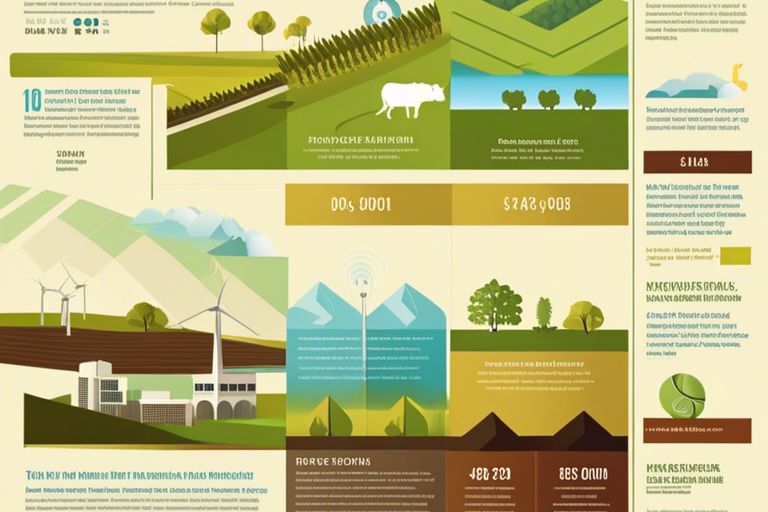Data on land ownership has long been a crucial element in understanding property rights and real estate transactions. However, in the ever-evolving landscape of land management, the focus is shifting towards comprehensive land data that goes beyond mere ownership details. This shift acknowledges the importance of understanding not just who owns the land, but also how it is being utilized and what potential it holds for the future. In this blog post, we will explore into the significance of comprehensive land data information and how it can provide valuable insights for various stakeholders in the real estate industry.
Understanding Land Ownership
Historical Perspective on Land Ownership
Ownership of land has been a fundamental concept since ancient times, with societies developing various systems to define and regulate land ownership. From feudal land systems to modern property rights, the history of land ownership is rich and complex, reflecting evolving social, political, and economic structures.
Current Trends in Land Ownership and Management
One of the current trends in land ownership and management is the increasing diversification of ownership structures. This includes the rise of community land trusts, land cooperatives, and conservation easements, which aim to promote sustainable land use practices and address issues of equity and affordability. These alternative ownership models challenge traditional notions of property rights and prioritize collective benefit over individual ownership.
Land ownership is not just about possessing a piece of land; it is about stewardship and responsibility for the land’s use and impact on the environment and society. By understanding the historical context and current trends in land ownership, we can better navigate the complex landscape of land management and promote more sustainable and equitable practices.
The Shift to Land Use Emphasis
Developing Sustainable Land Use Practices
Developing sustainable land use practices is crucial in ensuring the longevity of our environment and resources. By employing techniques such as agroforestry, rotational grazing, and low-impact development, we can promote biodiversity, minimize erosion, and conserve water resources. Emphasizing sustainable practices not only benefits the land but also contributes to healthier ecosystems and more resilient communities.
Policies and Regulations Influencing Land Use
Sustainable land use practices are often guided by policies and regulations set forth by local, state, and federal governments. These regulations aim to promote responsible land stewardship, prevent overdevelopment, and safeguard natural resources. By adhering to zoning laws, conservation easements, and environmental impact assessments, landowners can ensure that their activities are in line with sustainable practices and contribute to the overall well-being of the ecosystem.
This emphasis on policies and regulations underscores the importance of integrating environmental considerations into land use decision-making processes. By carefully considering the long-term impacts of land use decisions, stakeholders can work towards creating a more sustainable and resilient landscape for future generations.
Expanding Land Data Accessibility
Technological Advancements in Land Data Collection and Analysis
Analysis: All around the world, technological advancements are revolutionizing the way we collect and analyze land data. From drones and satellites capturing high-resolution images to machine learning algorithms processing massive datasets, these tools are enabling more accurate and detailed insights into land use patterns and trends.
The Role of Open Data in Land Use Planning
Planning: All governments and organizations involved in land use planning are increasingly recognizing the importance of open data. By sharing land data openly, stakeholders can collaborate more effectively, make evidence-based decisions, and ensure transparency in the planning process. Open data also empowers communities to participate in decision-making and hold authorities accountable.
Data: Open data in land use planning plays a crucial role in fostering sustainability, inclusivity, and efficiency in urban development. By providing easy access to comprehensive land data information, policymakers, researchers, and the public can work together to create more resilient and well-informed land use plans that address current and future challenges. Open data initiatives also help bridge the gap between data producers and users, promoting a more collaborative and democratic approach to land management.
Challenges and Opportunities in Comprehensive Land Data
Overcoming Data Fragmentation and Inconsistency
On the journey towards comprehensive land data, one of the primary challenges faced is the fragmentation and inconsistency of data sources. Different departments and agencies may maintain their databases, leading to disparities in information. This can hinder efforts to create a unified and accurate land data system. Addressing this challenge requires collaboration between stakeholders to streamline data collection, storage, and sharing processes.
Strategic Utilization of Land Data for Future Development
With the advent of advanced technologies and data analytics, there lies a golden opportunity to strategically utilize land data for future development. By harnessing the power of artificial intelligence, machine learning, and spatial analysis, decision-makers can extract valuable insights from land data to inform urban planning, infrastructure development, and environmental conservation efforts. This data-driven approach can help optimize resource allocation and drive sustainable development initiatives.
Understanding the potential of comprehensive land data in shaping the future of our cities and landscapes is crucial for maximizing its benefits. By leveraging geospatial information, socio-economic indicators, and environmental data, policymakers can make informed decisions that promote inclusive growth, environmental sustainability, and social equity. Embracing a holistic approach to land data utilization is key to unlocking its transformative potential in driving positive change for communities worldwide.

Summing up
Presently, the shift from ownership to land use as the focal point in comprehensive land data information is crucial for effective land management and sustainable development. By emphasizing the utilization and potential of land resources rather than mere ownership, this approach opens up possibilities for better decision-making processes and a more inclusive understanding of land dynamics. It highlights the need for comprehensive data collection and sharing mechanisms that can support policymakers, planners, and researchers in making informed choices that benefit both people and the environment. Moving forward, integrating diverse perspectives and practices into land use discussions will be vital in creating more resilient and equitable land systems for the future.

